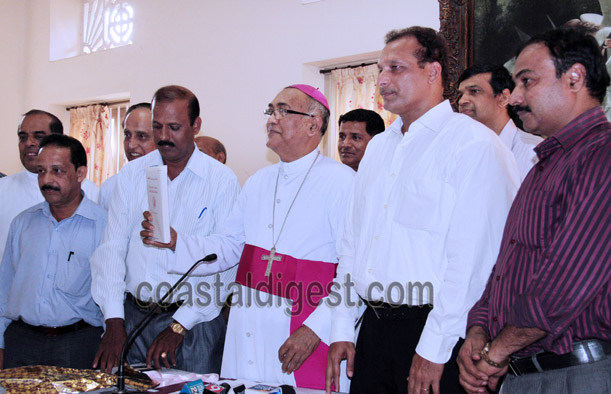
Mangalore, February 7: Aloysius Paul D'Souza, the Bishop of Mangalore has denied any wrongdoing on the part of the diocese over a housing project being undertaken to mark the 125th anniversary of the Diocese.
Replying to a question while addressing the media to announce the conclusion of the year-long celebration, Mr. D'Souza said. “There is no controversy.” He, however, refused to elaborate any further by saying the the responsibility of these houses lies with the respective parish.
“We have built houses and till today around 97 houses are in various stages of construction. The beneficiaries of these houses are owners of their respective lands. They own the plots. We have received around Rs 52.3 lakhs for this housing project. The responsibility of these houses lies with the Parish of that area and they can attend to the issues of the tenants,” the Bishop said.
Asked about the residents of Maroli who were residing on the premises formerly owned by St. Antony's Institutes of Charity, the Bishop said that some of them lived in bungalows elsewhere.
Two Christian groups had staged a protest outside the Biship's house on January 31 accusing the diocese of fooling the people in the name of constructing house for the poor.
Members of the United Christian Association and Christian Reform Foundation staged a silent demonstration here on January 31 demanding that some of the families residing in houses owned by the Catholic church be given ownership of the houses.
They demonstrated in front of the Bishop's house in Kodialbail. In a pamphlet distributed to journalists, the two groups said that instead of building 320 houses as planned, the church should transfer ownership of the land in which poor families are presently living rather than build new houses for them.
Allegation
The pamphlet said that 13 families residing in the compound of St. Anthony's Institutes of Charity were being evicted from their homes. Residents of the compound Irene and John were shown as beneficiaries of a housing project by the church.
One of the families, portrayed in the press as the first beneficiary of the project had come out in the open saying that they had to pay a rent of Rs 2000 every month in order to live there.







Comments
Add new comment